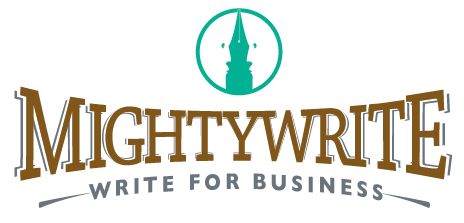Susan Kuz is a Positive Psychology Practitioner who has facilitated workshops, created programs, and coached clients since 2009. Her long list of credentials includes a Certificate in Applied Positive Psychology from the Flourishing Centre in NYC, she is a Certified Coach, and a graduate of Mindfulness-based Strengths Practice level 1 and 2 with the VIA Character Organization. She is owner of Being Pukka.
What is positive psychology?
Positive psychology is the scientific study of what makes people and communities flourish and thrive. “Instead of focussing on illness, positive psychology looks at why some people are happier and more resilient,” she says. “This is really about wellness and well-being. How can we help people flourish and thrive more in their lives no matter where they are on that scale of wellness?”
Character strengths are one of the core elements of positive psychology. Kuz says, “This is steeped in extensive research that was conducted worldwide, to determine the 24 character strengths that are consistently found in all cultures, religions, and thought leaders.” The full list is included below.
I have done the VIA survey a few times and discovered a remarkable level of positivity when I consciously align my life and actions with my top character strengths or signature strengths as they are called. They are (currently) Perseverance, Social Intelligence, Perspective, Fairness and Appreciation of Beauty and Excellence. Susan has assured me not to be too freaked out that some of the things I value, such as bravery and humor, are low on my list.
“We shouldn’t automatically look at our strengths and focus on the ones at the bottom of the list because we think that’s what we have to improve,” she says. Instead, we should focus on our top signature strengths.
“Those are the things you couldn’t possibly live without expressing. They are natural and energizing to you.”
The strengths that are lower on the list are likely just the ones you don’t express or use as often.
Why is knowing our signature strengths important?
Susan says, “Those signature strengths are the things that make us unique and energize us. Aligning our strengths and values, which occurs naturally, helps to give our lives more meaning, enabling us to do things in a better way, take better care of ourselves, and have a higher degree of life satisfaction.”
She adds, “It’s really about how you choose to live and can help you to refrain from ‘shoulding all over yourself’.”
Shoulding all over yourself? That’s a good one, which Susan credits to someone else.
Character strengths can be drawn on to help us through tough times. “If you’re dealing with an illness, or a loss or challenge at work, ask yourself how can I use my strengths to move forward? Maybe you can use humour to ignite the team or help to lessen tension for people who are struggling, or you could use perseverance to get past a particularly difficult challenge. Someone may use creativity to consider how to approach a problem in a different way. Again, everyone is at their best when they come to the table with their top strengths. It benefits us as well as those around us.”
She cautions being wary of comparisons. “Sometimes we rate ourselves lower on a strength because we compare ourselves to others who we may think are kinder, more humble, braver, funnier, etc. than we are.” As a result, we score lower. “Do the survey more than once, and get some feedback from other people if you are surprised by your results. In the end, identifying signature strengths is personal and subjective. But it can help to get feedback from others because you may see yourself differently than you present.”
Boosting well-being
Focusing on strengths is fun. “Everyone likes to know what is best and unique about themselves,” Susan says. “The fact that it is very good for our health, well-being and success is a beautiful bonus.” Susan offers a few programs to make a game out of it such as a 7-Day Boost or Vitality Challenge. “This keeps the experience positive and fun.”
“I developed the Vitality Challenge to boost my fitness routine and ended up using my top strengths of Curiosity, Love of Learning and Creativity throughout my challenges, which included doing 50 new exercise activities in the year I turned 50.” This also aligned with the framework of positive psychology which includes positive emotion, engagement, building relationships, cultivating meaning, and achieving goals.

Susan presented her Vitality Challenge at the Canadian Positive Psychology Conference in May 2018. My colleague and friend, Mary Ann Baynton, was in attendance and was inspired by Susan’s story. She decided to commit to doing her own version of the Vitality Challenge in honour of a colleague, Karen Lieberman, who had passed away while Mary Ann was attending the conference. She says, “I posted my intention publicly on Facebook before I could back out. “ As of today, she has done 41 activities with 11 more to go before May 2019.
She says that of her top character strengths, she credits honesty for supporting her in following through with the Challenge. “I said I would and so I must. This was done as an exercise in discipline. It is a fun way to increase my physical activity as well as to introduce me to different approaches to well-being.”
Drawing on strengths in unexpected ways

When asked what she learned, Mary Ann says, “I have the most amazing friends, family and colleagues. They are not just emotionally supportive, they actually are there for me in a real, physical sense by setting up activities and going with me. One example of this is a good friend who made arrangements to take me snowshoeing, including ensuring I had the right equipment and that I was dressed appropriately.”
She adds, “This has increased my gratitude for those I am fortunate to have in my life. It has kept Karen’s memory alive and thriving. She still inspires me. It opened my eyes to activities that I will go back to when my challenge is done. It pushed me out of my comfort zone and increased my sense of courage and competence (well, no more competence in the area of dance, but it was still fun!). I have done lots of traditional exercise on machines and in yoga studios, but I have also done rock climbing, moving meditations, snowshoeing, trampolines, and parasailing! Some of these I am sure I would not otherwise have tried.”
Susan says, “This is a beautiful example of how we can use our strengths to move through tough times, which for Mary Ann was the death of her friend.” She says that everyone benefits when we recognize opportunities to use our strengths in this way and that sometimes we may have to dig around and use strengths we haven’t used as much.
“It’s something you have to put into action and practice. It’s like going to the gym, but it’s practicing different skills. It’s preventative medicine in the sense that it contributes to both mental and physical wellness.”
Taking a deeper dive

While there’s been a lot of focus on happiness, Susan says drawing on our strengths goes deeper. It helps to cultivate more meaning in life and increase our levels of life-satisfaction. “Using our strengths correlates with better health. We exhibit more healthy behaviors, are more resilient, are less likely to be depressed or stressed. We are happier and feel more positive. We have better relationships at home. At work, we are more engaged and productive and are more likely to see our work as a calling. Overall, we have more vitality and passion for life.”
She also urges us to “strength spot”. This means acknowledging the strengths we see in the people around us, including our colleagues and in particular, our family. “It can benefit our relationships when we tell our partner or our children that we see and appreciate the strengths they show up with.”
People light up as this awareness increases.
Canadians’ top strengths are Fairness, Honesty, Judgement, Kindness, and Curiosity. Runners up are Love and Gratitude.
How to flourish and thrive in your strengths
- Having a boss who recognizes and celebrates your strengths
- Having the ability to focus and leverage your strengths daily at work
- Having co-workers celebrate and support your strengths
- Recognizing and acknowledging when someone is coming from a place of their strength
- Having work that aligns with your strengths – and job crafting if necessary to achieve that
- Uplifting others by “strength spotting”
24 Character Strengths
- Appreciation of Beauty & Excellence
- Bravery
- Creativity
- Curiosity
- Fairness
- Forgiveness
- Gratitude
- Honesty
- Hope
- Humility
- Humor
- Judgment
- Kindness
- Leadership
- Love
- Love of Learning
- Perseverance
- Perspective
- Prudence
- Self-Regulation
- Social Intelligence
- Spirituality
- Teamwork
- Zest
Visit http://beingpukka.pro.viasurvey.org to register and conduct your own character strength survey. You can also check out Susan’s My Life Reboot group on Facebook https://www.facebook.com/groups/186350975592974/?epa=SEARCH_BOX
[/cd_text][/cd_column][/cd_row][cd_row][/cd_row]

